New research shows that the popular The Fast and the Furious movie franchise may be encouraging motorists to speed. A New York Times report analyzed traffic violation data from Montgomery County in Maryland from 2012 to 2017. The researchers found a large increase in the average speed of drivers who received speeding tickets on the weekends after new Fast and the Furious movies were released. Continue reading “Report: ‘Fast and Furious’ Movies Cause Increase in Speeding Tickets”
Category: News
Ford Patent Could Replace Traffic Cops with Autonomous Cars
Red light cameras and speed cameras have been praised and panned for taking the human element out of traffic enforcement. Now Ford is taking this one step further with a patent for a fully autonomous police car, filed in January.
Continue reading “Ford Patent Could Replace Traffic Cops with Autonomous Cars”
The Obscure Speeding Ticket You Didn’t Know About: 1180(e) Failure to Reduce Speed
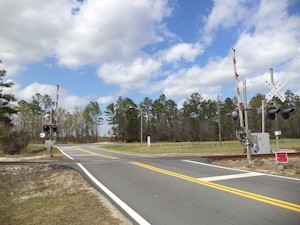
Most drivers realize there are a handful of different kinds of speeding tickets. There’s your basic speeding ticket (1180-d), speeding in a school zone (1180-c), and speeding in a work zone (1180-f). There’s another type of speeding ticket, however, that very few drivers know about — at least until they get a citation for it.
VTL 1180-e, also known as failure to reduce speed (special hazards), is a largely obscure but still occasionally issued ticket. In 2014 (the most recent data available) about 900 tickets for 1180-e were issued, representing well under 1 percent of all speeding tickets. Still, the wide variety of instances where this ticket applies makes it worth knowing about.
An 1180-e ticket can be issued during situations when drivers are expected to slow down momentarily, such as when approaching train tracks, on tight and winding roads, or near the crest of a hill. Another instance would be when approaching an intersection with pedestrians in it (regardless of right of way). The statute also contains restrictions that are redundant to other traffic laws. This includes approaching and passing emergency vehicles (similar to the Move Over law), driving within construction zones (similar to 1180-f), or traveling in hazardous weather conditions (similar to 1180-a/imprudent speed).
The statute actually predates many of the traffic laws (such as speeding in a work zone or the Move Over law) that it shares conditions with, which partially explains why the ticket is so infrequently issued. Officers tend to issue the newer, more specific violations, and use 1180-e when no other statute applies.
Unlike many other types of speeding tickets, the fines and points for a VTL 1180-e offense do not increase relative to your speed. A ticket costs $150 plus a mandatory surcharge of up to $93, and also imposes three points on your license. If you or a loved one has been issued a ticket for VTL 1180-e or any other speeding-related violation, it is urgent that you consult an attorney to help you avoid the consequences of a conviction. The lawyers of the Rosenblum Law Firm are skilled New York traffic ticket attorneys who are experienced in handling tickets for speeding as well as other driving-related offenses. Call 888-203-2619 or email the Rosenblum Law Firm today for a free consultation about your case.
Know Your Speeding Tickets

1180-a: Speed Not Reasonable Prudent. This ticket applies when road conditions require drivers to slow down below the posted limit. Such conditions might include thick fog, heavy rain, or icy roads, and it is ultimately up to the officer to determine what conditions require slowing down and what speed is prudent. Cost: $150. Points: 3.
1180-b: Speed Over State Limit. New York State has established 55mph as the maximum speed that drivers can go on any road in the state, although many roads have lower limits. If you are speeding on a highway, this is the ticket you will probably get. Cost: $150 to $600 depending on speed. Points: 3 to 11 depending on speed.
1180-c: Speed in a School Zone. As the name implies, this a specific ticket for violating the 25mph limit around schools. Fines for this offense are more expensive when school is in session. Cost: $150 to $600 on non-school days or between 7pm and 6am on school days; $300 to $1,500 between 6am and 7pm on school days. Points: 3 to 11 depending on speed (regardless of day/time).
1180-d: Speed in Zone. This is your catch-all speeding ticket. Most speeding tickets issued in New York are 1180-d. Cost: $150 to $600 depending on speed. Points: 3 to 11 depending on speed.
1180-e: Failure to reduce speed (special hazards). A rarely issued ticket, this citation applies to drivers who do not reduce their speed when approaching things like railway crossings, the crest of a hill, or narrow turns. The statute also contains provisions redundant to other tickets, such as slowing down for emergency vehicles (similar to the Move Over law), when approaching construction zones (similar to 1180-f), or in hazardous weather conditions (similar to 1180-a). Cost: $150. Points: 3.
1180-f: Speed in Construction Zone. Nothing difficult here. Note that getting convicted of this violation twice in 18 months will result in an automatic suspension of your driving privileges. Cost: $150 to $600 depending on speed. Points: 3 to 11 depending on speed.
1181-a: Driving too slow (impeding traffic). This is an inverted speeding ticket – it applies if you are driving so slowly that you are holding up traffic. There’s no specific guidance as to how far below the posted limit constitutes too slow; it depends on whether the officer considers your speed to be a disruption or a hazard. Cost: $150. Points: 3.
1181-b: Driving below posted minimum speed. This is also a ticket for going too slow, and applies on highways that have posted minimum speeds. As with 1181-a, there’s no details on how far below the minimum is too slow, so it up to the officer to decide. Cost: $150. Points: 3.
1182-1: Unauthorized speed contest. This is a ticket for racing. There’s no points for this ticket because it is always accompanied by a speeding ticket (and possibly a reckless driving charge as well). Cost: $575. Points: None.
On top of the listed fines and points, a conviction for any of the above tickets can impact your auto insurance rates. In addition, three convictions for speeding within 18 months (or two convictions for speeding in a work zone) will automatically result in a suspended license. If you or a loved one has been issued any kind of speeding ticket in New York, contact a lawyer right away to fight the charges and avoid the points associated with a ticket. The lawyers of the Rosenblum Law Firm are skilled New York traffic ticket attorneys who are experienced in handling tickets for all types of speeding and other driving-related offenses. Call 888-203-2619 or email the Rosenblum Law Firm today for a free consultation about your case.
When a Speeding Ticket Becomes a Civil Lawsuit
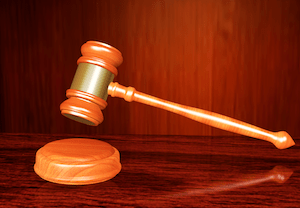
Once a guilty plea has been entered into the court system, that admission can be used against you in a civil lawsuit. That’s why other states such as California and Connecticut have the option of pleading nolo contendere, i.e. no contest. In essence, a plea of nolo contendere means you know you can’t prove your innocence, so you accept the consequences of the charges but do not admit guilt. As a result, the plea and the charges cannot be used as evidence in a civil suit since you never found guilty or admitted to committing the crime.
Unfortunately, New York does not allow defendants to plead no contest; you can either accept the charges or fight them in traffic court. It should be noted that being found guilty does not carry quite the same weight in civil court as pleading guilty. However, either one indicates a level of civil liability. If the odds of getting found not-guilty of one or more charges seem slim, the next best bet would be to hire an attorney to help negotiate the charges down to a non-moving violation. In addition to having less of an impact your auto insurance, a non-moving conviction can’t be used in an accident-related civil suit.
Drivers should also be cautious about verbally admitting to traffic violations, especially at the scene of an accident. Off-the-cuff statements such as “I was only going 5mph over the limit” or “I didn’t see her in my mirror” can be used against you in civil court (as well as in traffic court).
It is essential that you contact an attorney if you or someone you love has been given a speeding ticket or any other traffic violation in connection with an accident. The lawyers of the Rosenblum Law Firm are skilled traffic ticket attorneys with extensive experience fighting moving violations and negotiating with prosecutors. Email or call 888-203-2619 for a free consultation about your case.
How to Get a Warning Instead of a Ticket
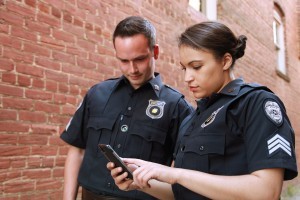
Let’s start with the opposite: when an officer is allowed to issue a ticket? A cop must have an objective, clearly articulable violation of an ordinance or statute which prompts the traffic stop. This is referred to as “probable cause.” There are some exceptions to this, such as an investigative stop based on reasonable suspicion of a crime. If neither of the above are the case, the stop would be considered unlawful.
That said, if you have been pulled over it is usually reasonable to assume that the officer clearly witnessed a violation. When a driver isn’t cited, it is usually because the officer exercised discretion and decided not to. Law enforcement officials have surprisingly wide latitude in discretion — they can warn or ticket for a lot of reasons, including patently superficial ones. They can also choose to issue tickets for relatively trivial offenses, or issue a warning for serious ones.
The bottom line is that there isn’t necessarily a rhyme or reason behind the decision to ticket or not ticket. Does that mean that getting off with a warning is a matter of luck? Perhaps, but there are some things you can do to increase your chances, such as:
- Be polite. Remember that the officer is only doing his/her own job.
- Be calm. Don’t get frustrated or angry. At the same time, don’t gush or turn on the water works (this may work sometimes for women, but only in moderation).
- Be quiet. In other words, don’t offer any more information than you have to. Don’t admit to the infraction. If you do and the officer does issue a ticket, that admission can be used against you should you challenge to ticket in court.
- Be cooperative. Provide the legally required information and documents in a timely manner. Also, keep the music down and your hands on the wheel. In the daytime, take off your sunglasses. At night, turn on the interior car lights.
Realize that even if you do all of the above you may still get a ticket. If you or a loved one has been ticketed for speeding or any other traffic violation in New York or New Jersey, you need expert legal counsel right away. The lawyers of the Rosenblum Law Firm are skilled traffic ticket attorneys who are experienced in handling tickets for speeding as well as other driving-related offenses. Call 888-203-2619 or email the Rosenblum Law Firm today for a free consultation about your case.
The Fastest Speeding Ticket Ever
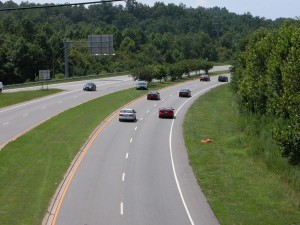
There is one caveat to all this – no public record of the incident exists. The story became widespread when it was mentioned on an episode of Top Gear (Season 8, Episode 1). No witnesses or evidence have ever turned up.
Given the possible fiction-status of this entry, we submit to you a follow up: a 205-mph ticket for a motorcycle rider in Minnesota. Here at least there is an article documenting the incident. It happened in 2004 on U.S. Highway 61 in Wabasha. The rider, then-20-year-old Samuel Armstrong Tilley, was arrested and charged with reckless driving and driving without a motorcycle license.
If you are caught going over 200 mph in New York you are likely to get hit with a speeding ticket of about $600, plus a mandatory NYS surcharge of up to $93. A conviction would result in 11 points on your license, which means an automatic suspension even if you have no other convictions on your driving record. Not to mention, at such a speed, it’s also possible to be charged with reckless driving, as happened to Tilley. That’s not even getting into the impact on your auto insurance.
If you or a loved one has been caught speeding – even if it doesn’t break any records – it is advisable that you consult an attorney right away. The lawyers of the Rosenblum Law Firm are skilled New York traffic ticket attorneys with experience handling tickets for speeding as well as other driving-related offenses. Call 888-203-2619 or email the Rosenblum Law Firm today for a free consultation about your case.
Are You Liable if Your Speedometer is Broken?
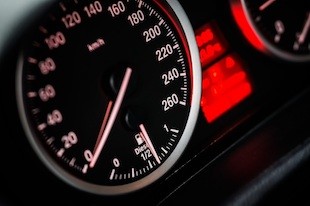
Unfortunately, you are.
In New York State, drivers are responsible for the upkeep of their vehicles. When something breaks – whether it’s a tail light, brakes, or a speedometer – you are liable for any violation that may result. Sometimes a ticket, such as one for a broken headlight, can be dismissed if the driver can prove in court that it was fixed within 24 hours of the ticket.
A broken speedometer would be more difficult to fight this way. For starters, you’d have to present evidence that you were speeding because the instrument was faulty. Second, you’d have to show proof that it was fixed within 24 hours of the ticket. Finally, you’d have to hope to get a lenient judge, since not all of them will dismiss a ticket just because you fixed the problem.
A conviction for speeding in New York carries at least 3 points on your license, plus $150 in fines. Drivers will also be expected to pay an NYS surcharge of up to $93 and possibly a $100 driver responsibility assessment. Speeding tickets can also increase your auto insurance premiums by hundreds of dollars.
If you or a loved one has been caught speeding, it is essential that you consult an attorney to help you avoid the costs associated with a ticket. The lawyers of the Rosenblum Law Firm are skilled New York traffic ticket attorneys who have experience handling tickets for speeding as well as other driving-related offenses. Call 888-203-2619 or email the Rosenblum Law Firm today for a free consultation about your case.
What to Do if Your Car Skids
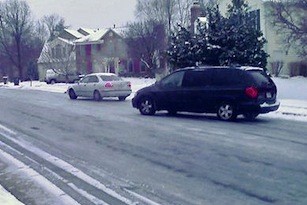
Not every skid is caused by poor driving skills. Black ice – a thin layer of ice on the pavement that is often invisible to drivers – can strike even the most mindful driver without warning.
It is important that drivers adjust their speed and take precautions during the winter, especially when the roads are covered in ice and snow. Even the best driver can stand to review these best practices for what to do when the car starts to skid.
- Beware of change. Skidding is typically triggered by changes in speed, direction, or both. Be extra mindful any time you are accelerating, decelerating, or turning, as this is when a skid is mostly likely to happen.
- Remain calm. Try your best not to panic. Panicked drivers tend to overcorrect, which makes the skid worse.
- Slam (or pump) the brakes. If you have anti-lock brakes (which most newer cars do), slam the brakes as hard as you can; the anti-lock technology will deliberately stutter the brakes to help the car re-grip the road. For older cars without anti-lock brakes, manually pump the brakes to achieve the same effect.
- Steer into the skid. If the back wheels are skidding, turn the wheel in the same direction the back end of the car is sliding towards. For a front-wheel skid, straighten the steering wheel.
- Look where you want to go. Hand-eye coordination makes a difference, so do your best to keep your gaze in the direction you want the car to go.
- Don’t trust AWD. While all-wheel drive is great, it is not going to prevent every skid.
It’s not just about safety. Driving too fast in icy conditions can actually land you a ticket. There’s no specific guidelines as to what qualifies as imprudent, but if a police officer deems your speed to be not reasonable and prudent under the conditions, you could get a ticket for imprudent speed. A first offense can result in 3 points on your license, plus up to $150 in fines and an NYS surcharge of $93. A conviction could also mean up to 15 days in jail. Penalties increase for a second and third conviction within 18 months.
If you or a loved one has been ticketed for imprudent speed, or any other kind of traffic violation, consult an attorney to help you avoid the costs, points, and increase in insurance premiums that can result from a conviction. The lawyers of the Rosenblum Law Firm are skilled New York traffic ticket attorneys who are experienced in handling tickets for a range of driving-related offenses. Call 888-203-2619 or email the Rosenblum Law Firm today for a free consultation about your case.
NYPD to Crack Down on Speeding in 2017
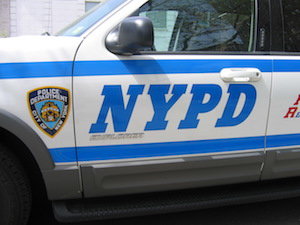
Drivers in New York City would be well advised to slow down. The NYPD is vowing to issue more tickets for speeding and other infractions as part of Mayor Bill de Blasio’s plan to cut down on traffic injuries and deaths. The mayor also included several items in the proposed Fiscal Year 2018 budget that will aid in this additional enforcement, including 120 new radar guns for local precincts.
Last year the NYPD issued a record 137,000 speeding tickets, a record it will likely break this year. In continuing with his signature Vision Zero initiative, de Blasio has ordered police to step up enforcement of speeding and other infractions with the aim of cutting down traffic fatalities. According to the NYC Department of Transportation, in the three years since Vision Zero began, traffic deaths are down more than 20 percent.
Speeding tickets can cost far more than a simple $150 fine. In New York, a conviction for speeding carries at least three points on your license. Drivers will also be expected to pay a surcharge of up to $93 and possibly a $100 driver responsibility assessment per year for the next three years. Speeding tickets can also increase your auto insurance premiums by hundreds of dollars.
If you or a loved one has been ticketed for speeding, texting while driving, or any other traffic violation as part of NYC’s Vision Zero crackdown, contact an attorney to help avoid the consequences. The lawyers of the Rosenblum Law Firm are skilled New York traffic ticket attorneys who are experienced in handling tickets for speeding as well as other driving-related offenses. Call 888-203-2619 or email the Rosenblum Law Firm today for a free consultation about your case.
